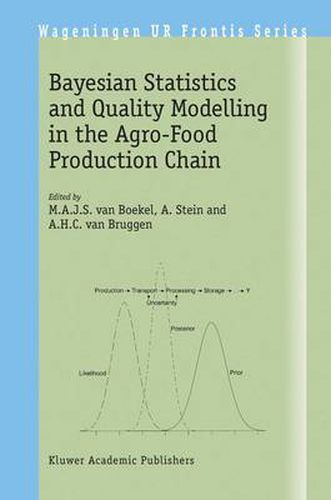Readings Newsletter
Become a Readings Member to make your shopping experience even easier.
Sign in or sign up for free!
You’re not far away from qualifying for FREE standard shipping within Australia
You’ve qualified for FREE standard shipping within Australia
The cart is loading…






This title is printed to order. This book may have been self-published. If so, we cannot guarantee the quality of the content. In the main most books will have gone through the editing process however some may not. We therefore suggest that you be aware of this before ordering this book. If in doubt check either the author or publisher’s details as we are unable to accept any returns unless they are faulty. Please contact us if you have any questions.
The food market is changing from a producer-controlled to a consumer-directed market. A main driving force is consumer concern about agricultural production methods and food safety. More than before, the consumer demands transparency of the production and processing chain. A food chain can be quite complex and the use of models has become indispensable to handle this complexity. Modelling tools are becoming increasingly important to guide the decisions for production of high-quality and safe agricultural foods. With the aid of models it becomes possible to control and predict quality attributes, so that product innovation can be done more efficiently. However, quality is an elusive concept, and there is always an aspect of subjectivity and uncertainty. A novel approach in the agro-food chain would be to tackle subjective elements and uncertainty in modelling by using Bayesian statistics and Bayesian Belief Networks. Bayesian approaches use prior probabilities (partly accounting for subjectivity) to estimate posterior probabilities, resulting in higher accuracy than is possible with classical statistical techniques. Thus, the variability and uncertainty in data and decisions, inherent in a complex food chain, can be dealt with.
$9.00 standard shipping within Australia
FREE standard shipping within Australia for orders over $100.00
Express & International shipping calculated at checkout
This title is printed to order. This book may have been self-published. If so, we cannot guarantee the quality of the content. In the main most books will have gone through the editing process however some may not. We therefore suggest that you be aware of this before ordering this book. If in doubt check either the author or publisher’s details as we are unable to accept any returns unless they are faulty. Please contact us if you have any questions.
The food market is changing from a producer-controlled to a consumer-directed market. A main driving force is consumer concern about agricultural production methods and food safety. More than before, the consumer demands transparency of the production and processing chain. A food chain can be quite complex and the use of models has become indispensable to handle this complexity. Modelling tools are becoming increasingly important to guide the decisions for production of high-quality and safe agricultural foods. With the aid of models it becomes possible to control and predict quality attributes, so that product innovation can be done more efficiently. However, quality is an elusive concept, and there is always an aspect of subjectivity and uncertainty. A novel approach in the agro-food chain would be to tackle subjective elements and uncertainty in modelling by using Bayesian statistics and Bayesian Belief Networks. Bayesian approaches use prior probabilities (partly accounting for subjectivity) to estimate posterior probabilities, resulting in higher accuracy than is possible with classical statistical techniques. Thus, the variability and uncertainty in data and decisions, inherent in a complex food chain, can be dealt with.